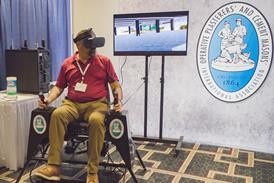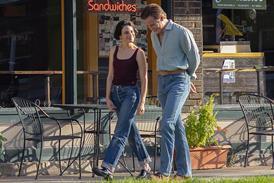Philippe Bober's sales, financing and production outfit The Coproduction Office is celebrating its 20th anniversary this year. The company was set up in 1987 in Berlin with the aim of supporting maverick auteurs with strong personal visions. Over the last two decades, Bober has championed the work of (among others) Lou Ye, Carlos Reygadas, Ulrich Seidl, Jessica Hausner, Takashi Miike, Kornel Mundruczo, Cristi Puiu and Roy Andersson.
"The first film I had in sales was Epidemic by Lars von Trier. It was a catastrophe, a real disaster!" Bober cheerfully recalls. He spent an entire year trying to sell the movie and ended up with a couple of small deals with Swiss-German and Portuguese TV stations.
Nonetheless, he looks back on Epidemic as a useful learning curve. "It's important knowledge to know why people don't buy a film." In the case of Epidemic, buyers simply did not want to take a risk on a small Danish movie from a then little-known director.
Undaunted, Bober continued to work with von Trier. Their next project together was Europa. "I offered to help with the financing outside of Denmark," Bober recalls of von Trier's first foray into the complex world of international co-production.
Bober went on to work on the director's The Kingdom (as co-producer and sales agent) and on Breaking The Waves, which he co-financed but which was sold by Christa Saredi. The Kingdom proved to be one of his biggest sellers. "It was made for TV. I suggested to Lars that he make a feature version, which he did - and it was 20 minutes longer than the TV version."
He suggests there are certain ground rules for selling high-end arthouse features. If the films are too "normal" the buyers will avoid them. To attract distributors, they also need to be "perfect". "The films that I have are absolutely without compromise as far as artistic quality is concerned," he adds.
"You have to work harder and be better when you make arthouse films than when you make genre films. You have to have perfectionism and endurance."
Scouting new product, Bober will watch up to 600 films a year. When he does board a project, he will go to extraordinary lengths to help the film-maker. He cites Lou Ye's Suzhou River, on which he was producer, as one of his most complicated projects. It was a film without a nationality (Lou Ye shot without permission in China). There was little public funding behind the film. Bober helped cash flow the movie and pre-sold it as widely as he could. In the end, the film was banned in China and Bober was forbidden from working in the country.
At present, Bober has three projects on the boil. Hungarian auteur Kornel Mundruczo is at work on his feature, Delta. Meanwhile, Ulrich Seidl's Import/Export and Roy Andersson's You, The Living are near completion and look bound to pique the curiosity of major festival programmers. Further down the line, Bober and his team are co-producing the latest feature from young Russian maverick Ilya Khrzhanovsky (Stop, 4).
How does Bober keep his company afloat while having to compete against such other director-driven companies as Celluloid Dreams or Wild Bunch' "I certainly do not have the same credit line," Bober smiles. "But I am an artisan and I bring the advantages of an artisan, which is time and care. Also, I am a producer. I bring knowledge that is relatively unique and the capacity of financing a film in France and Germany. This can be much more than a minimum guarantee financially and in terms of content."

















No comments yet